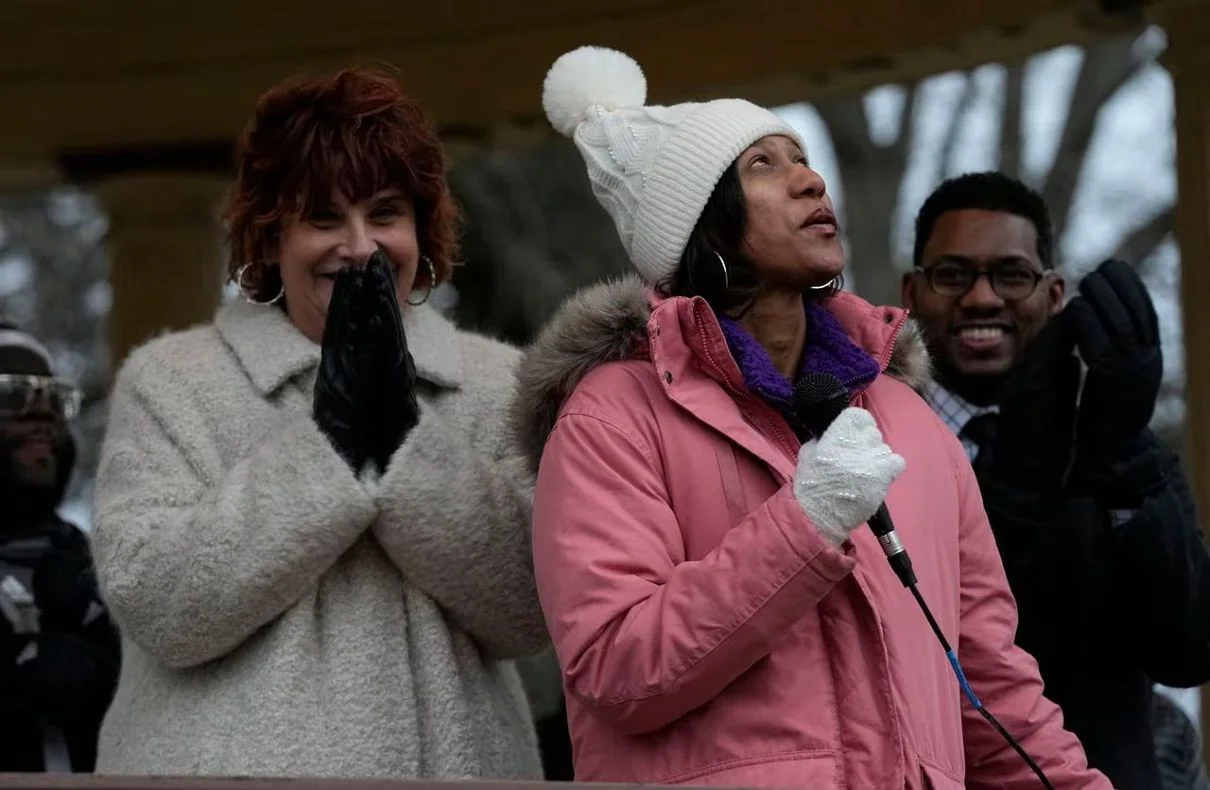
A grand jury in Ohio has chosen not to indict Brittany Watts, a woman who faced criminal charges for her handling of a home miscarriage. The case drew national attention and raised concerns about the impact on reproductive health care access.
Brittany Watts, a resident of Warren, Ohio, found herself at the center of a controversial legal battle after experiencing a miscarriage at home. The incident occurred on September 22, prompting an investigation by local authorities. Watts was initially charged with abuse of a corpse, a felony offense that carries serious penalties.
U.S. Teen Tragically Killed in West Bank Clash with Israeli Forces
Watts had sought medical attention at Mercy Health-St. Joseph’s Hospital in Warren prior to the miscarriage. Her doctors had informed her that she was carrying a nonviable fetus and recommended inducing labor to prevent potential life-threatening complications. However, due to delays and other complications, Watts left the hospital without receiving treatment on two separate occasions.
On the day of the miscarriage, Watts delivered the fetus into the toilet at her home. Afterward, she attempted to attend a hair appointment but was redirected to the hospital by concerned friends. It was during this visit that a nurse reported the situation to the authorities, stating that Watts had mentioned placing the fetal remains in a bucket in her backyard.
Watts’ case was initially brought before a municipal judge who found probable cause to proceed with the charges. City prosecutors argued that Watts had mishandled the remains by leaving the fetus in the toilet and going about her day. However, Watts’ defense attorney, Traci Timko, countered these claims by highlighting the lack of clear definitions in Ohio’s abuse-of-corpse statute.
After careful evaluation, the grand jury decided not to indict Brittany Watts on the abuse of a corpse charge. This decision has far-reaching implications for reproductive rights and the treatment of pregnant individuals in Ohio and beyond. The case drew significant attention from reproductive rights groups and legal experts who argued that it set a dangerous precedent and posed a threat to pregnant women’s autonomy.
The case of Brittany Watts occurs against the backdrop of ongoing legal challenges to reproductive rights in the United States. Since the overturning of Roe v. Wade, several states have passed restrictive abortion laws, raising concerns about access to comprehensive reproductive health care. The Ohio case further highlights the potential consequences of such restrictions on pregnant individuals.
The criminalization of pregnant individuals for their reproductive outcomes is a growing concern. Studies have shown that Black women, in particular, face disproportionate scrutiny and prosecution in cases related to pregnancy loss. The case of Brittany Watts exemplifies the alarming trend of criminalizing reproductive outcomes, which not only infringes on women’s rights but also creates a climate of fear and hesitation in seeking necessary medical care.
The public response to Brittany Watts’ case has been significant, with numerous supporters rallying behind her cause. Advocacy groups, such as In Our Own Voice, a Black reproductive rights organization, expressed relief at the grand jury’s decision. These groups emphasize the need to halt the dangerous trend of criminalizing reproductive outcomes and advocate for comprehensive reproductive health care access for all individuals.
Bullied Transgender Teen Dies: A Tragic Incident in Oklahoma School
Ohio’s abortion laws have been subject to scrutiny and legal challenges in recent years. The state previously banned abortions after 22 weeks of pregnancy, but a November referendum resulted in a change in the law to permit the procedure until viability, typically around 24 weeks. The Ohio case raises questions about the impact of restrictive abortion laws on pregnant individuals and the potential for unintended consequences.
In the aftermath of the case, there is a renewed call for education and legislation to protect pregnant individuals and their reproductive rights. Advocates argue for clearer legal definitions and guidelines surrounding miscarriages, ensuring that women are not unfairly targeted or criminalized for their reproductive outcomes. By addressing these issues, society can strive to provide support and compassion to those experiencing pregnancy loss.
